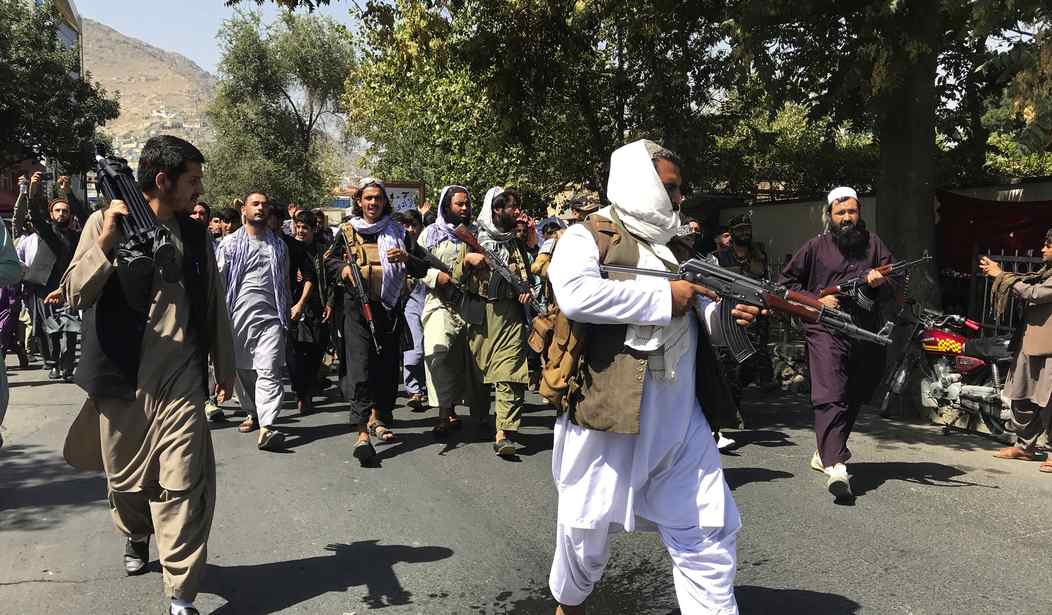Tuesday marked the two-year anniversary of America’s withdrawal from Afghanistan. The withdrawal was so disastrous that Joe Biden’s polling numbers fell sharply and he has never recovered. Nor should he. He is the commander-in-chief. The buck stops with him.
Women and girls have suffered greatly since the U.S. military left and the Taliban immediately took control. Though Joe Biden assured Americans that it would not happen, the Taliban were waiting for the U.S. military’s departure, as it was announced in advance. The Taliban was ready to fill the vacuum of leadership in the country and they did so immediately. Joe Biden was wrong about everything, including how he continues to say to this day that the withdrawal operation from Afghanistan was “very successful.”
The bad old days are back. The Taliban declared Tuesday a national holiday. You won’t find Afghan women celebrating.
The Taliban, which is not recognized by most countries around the world, has declared Tuesday a national holiday. The day is “full of honor and pride for Afghans,” Taliban deputy spokesperson Bilal Karimi told CNN.
“Afghanistan was freed from occupation, Afghans were able to regain their country, freedom, government and will. The only way to solve the problem is understanding and dialogue, pressure and force are not logical,” he added.
Things are only getting worse in Afghanistan. Dwindling foreign aid means that Afghans are battling hunger and illness. United Nations’ human rights experts said this week that conditions are getting worse.
“There is no such thing as women’s freedom anymore,” said Mahbouba Seraj, an Afghan women’s rights activist and 2023 Nobel Peace Prize nominee.
“The women in Afghanistan are being slowly erased from society, from life, from everything – their opinions, their voices, what they think, where they are.”
The Taliban said they would be a more moderate version of its former radical Islamist self when they took control in 2021. They promised that women would be allowed to continue their education, for example, up to the university level. That didn’t happen, though. Secondary schools for girls have been closed, and women have been banned from attending university and from working at NGOs, including the United Nations. Their travel is restricted without a male chaperone. Women are banned from public spaces like parks and gyms.
Women are no longer allowed to work and last month, the Taliban even closed all beauty salons across the country. The beauty salon industry employed about 60,000 women, many of them the sole breadwinners for their households. Now those families are struggling to get by.
Young women, like 20-year-old Zahra, had never known the brutal dictates of the Taliban. They grew up in a freer country, thanks to the presence of the U.S. military and NGOs there. Zahra enjoys art and wanted to be a designer and maybe start her own business. None of that is likely now.
“I’m 20 years old, and it is time for me to study, to get educated,” she said. “But I’m not allowed. I’m just in my house. I’m just worrying about my future, my sisters, and I’m worrying about the future of all women of Afghanistan.”
Unable to go outside much, she tries to occupy her time at home by painting, reading books, and taking whatever online classes are available. But it feels stifling, like being in prison, she says.
“I cannot concentrate because I see the situation, my sister is sitting at home, all the girls are sitting in their house. They cannot do anything.”
A Taliban spokesman acknowledged problems regarding girls’ education. He said the Taliban want to “pave the ground for Islamic rules and regulations” and establish a “safe environment for their education.” He also claimed that women work in health, education, police departments, passport offices, and airports. Nonprofit organizations say that isn’t the truth. There is an obvious problem in the health care sector.
Under the Taliban’s rules, women can only receive health care from other women – but the ban on women’s higher education means all female medical students haven’t been able to finish their studies and graduate, creating a shortage of much-needed female doctors, midwives and nurses.
“(The Taliban) seem perfectly comfortable with the idea that women and girls are almost certainly already dying because of a lack of health care professionals, because of their policies,” warned Heather Barr, association director of the women’s rights division at Human Rights Watch.
Young women like Zahra feel abandoned by the rest of the world. A women’s rights activist said, “The young people of Afghanistan are screaming their lungs out, trying to bring the world’s attention to themselves and to the situation of the war, of the woman in Afghanistan.”
Afghanistan’s economic situation hasn’t improved, with international funding cut off. Most of the world does not recognize the Taliban.
After the Taliban takeover, the US and its allies froze about $7 billion of the country’s foreign reserves and cut off international funding. The move crippled an economy already heavily dependent on aid, with millions of Afghans out of work, government employees going without pay, and the price of food and medicine skyrocketing.
Last year, the US set up an economic assistance fund of $3.5 billion with the frozen assets – but officials said they won’t release the money imminently to an institution in Afghanistan, instead going through an outside body, independent of the Taliban and the country’s central bank.
Humanitarian aid has dried up even more in recent months after the Taliban’s ban on women working at NGOs. Numerous organizations, including the UN, had to suspend critical programs or operations in the country.
The Taliban have become entrenched. They are implementing their extreme interpretation of Islamic law, also called Sharia law. Foreign or secular influences are not allowed, especially in allowing women to work or study. It’s back to the late 1990s in Afghanistan and the bad old days.
Thanks, Joe.







Join the conversation as a VIP Member